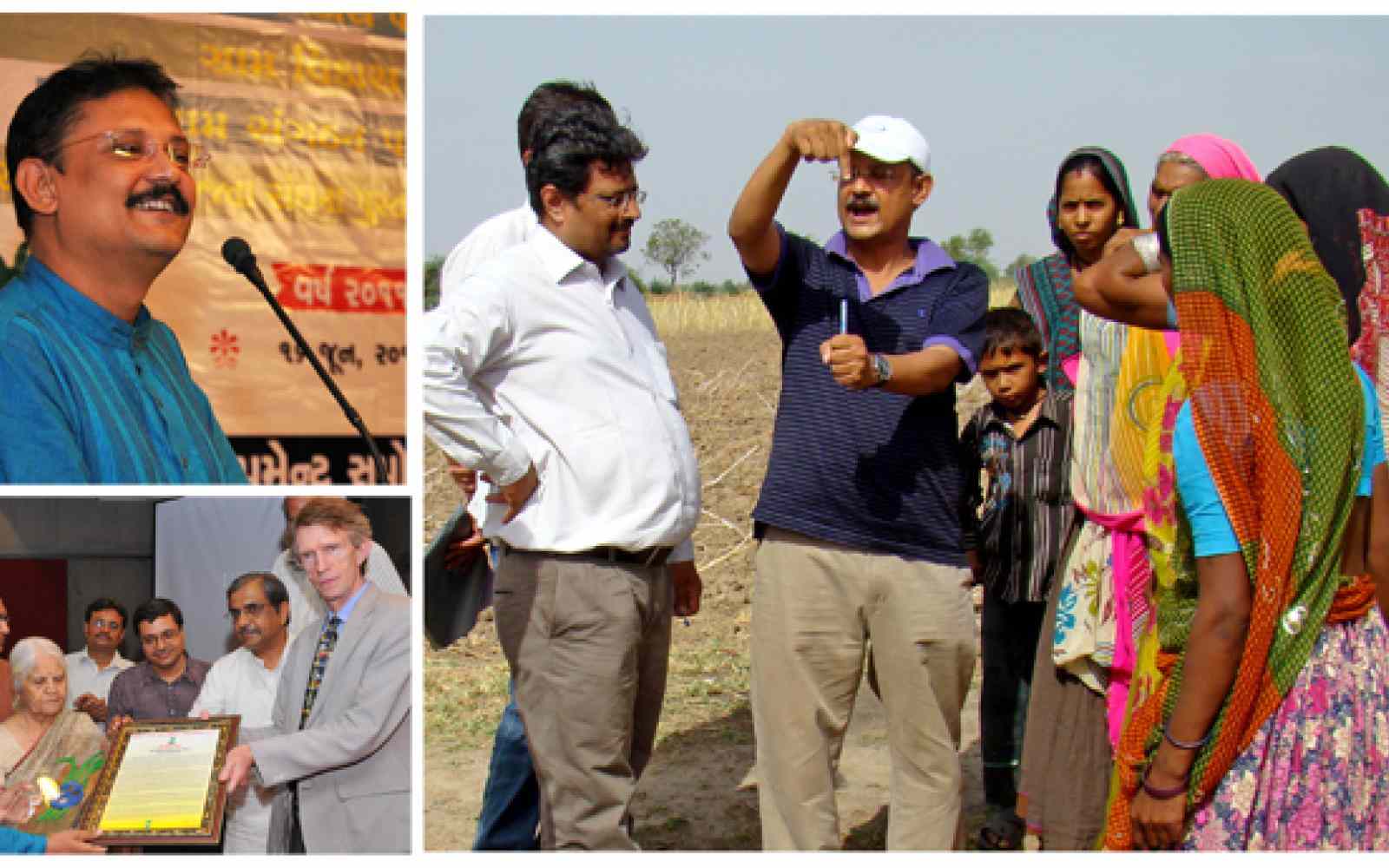Linking Water Access and Women’s Rights Towards a New Model for Upward Mobility in India

For Ashoka Fellow Biplab Paul, a series of natural disasters cleared the way for prosperity.
At just 10 years old, Paul experienced a devastating flood growing up in India’s West Bengal state. Years later, after receiving a master’s degree in economics, his interests in philanthropy and environmental education brought him across the country to Gujarat state, where severe drought plagued the poorest of citizens.
Seeing the long-term affects of two very different natural catastrophes convinced Paul that without access to water, people—especially women—in underserved communities had little chance of upward mobility.
Paul then set out to develop a women-led irrigation system that relies on rainwater harvesting and tackles the issues of water scarcity, gender inequality, and poverty.
In Gujarat, high saline levels prevent rainwater from penetrating the soil. Without water, farmers are unable to tend to their crops and are eventually forced to look for work elsewhere.
Biplab Paul’s organization, Naireeta Services Private Limited, borrows loans to install large underground reservoirs, which can provide farmers with much-needed water for up to seven months. Groups of five women are selected to operate the system and sign five-year contracts to repay service and construction costs through their cash crop.
This system earned Paul the Anil Shah Memorial Award for outstanding work in rural development last year, setting a standard for agricultural innovation and women’s empowerment in India.
Changing Roles
Today, Paul receives numerous accolades and awards for his work, but it didn’t come without its challenges. Locals were initially skeptical of the new women-led system, but were eventually sold on its influence and authority. This has led to an important cultural shift in Gujarat.
“In India’s patriarchal society, changing people’s perception of women’s roles takes decades of time,” he said. “But one impact is very clear. The primary occupation for men is agriculture, and irrigation is essential for their livelihood. Now, to get a single drop of water for irrigation, men have to approach women members for their permission to gain access.
This automatically gives women the upper hand on a critical resource, which translates as a recognition of women’s role in society.”
The Best Form of Flattery
No good deed goes unnoticed, and Paul’s work has attracted quite a few copycats replicating his model—an act that Paul actually welcomes.
“Imitation is the certificate of success,” Paul said. “Our technology is being imitated like wild fire and more than 4,000 units have been erected in the last three years.
Although not all of these units are functioning properly, we don’t believe in making a monopoly market of our technology. Based on that principle, we refrained ourselves from taking a patent on the technology. The logic is simple—if we are planning to work for and support the poor, then why should we make the technology under our control?
The technology is open source so that anyone can use it. We do have a non-negotiable principle, however—that the technology should be used for poor people only.
Mother Approved
“In my university days, my parents said, ‘a blunder has been made by our only son by deciding to opt for working in rural development without knowing what development is!’ It was very hard to digest,” Paul said.
“But in 2010, my mom said with a smile that, ‘my son is not earning well, but he has made great developments, not for him but for a good number of people whom he had never met before. I am proud of him.’
I think I can slog in rural India in scorching temperatures for another 100 years to hear these sweet words from my mom and bring a smile to many more moms in this beautiful world.”
Help us find and support more social entrepreneurs like Biplab Paul. Donate online.